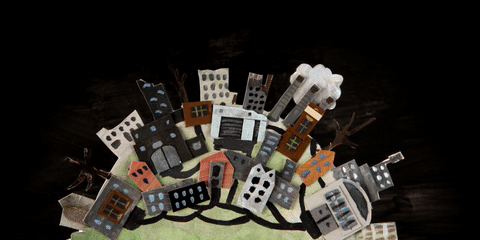So I am a fan of being lazy. I hope that at least some of you can identify with me. When it comes to being "eco-friendly" or what I also call being a "conscious consumer" some may associate the idea with working extremely hard or forcing yourself to be a martyr for the environment. Guess what? You don't have to be. My philosophy on stepping into the world of Eco-friendly is simply this: Do what you can and make the difference in the sector you can because every little bit helps. I am here to give you the "lazy person's guide" and the easy way to making a difference.

For those of you that don't have that resolve but still want to make a difference, stick with me as we explore the way I categorize the sectors available for improvement. There are 6 sectors: Energy Consumption, water consumption, waste reduction, Transportation, consumerism/shopping, and food! Hopefully, you can make 2-3 changes off of each list. There truly is no rush as you integrate these into your life, so If you want to take a whole month to work on one list item so it becomes a part of your nature to do the eco-friendly trait, I encourage that. It takes 66 Days to create a habit.
1. Energy Consumption
This sector addresses how much energy is being used when we are going about our normal lives.
-Put on another layer of clothing when it is cold before adjusting the thermostat
-Use LED bulbs in any lighting fixtures
-Turn off lights, TVs, personal computers and other electronics when you're done with them.
-Fix windows or doors with drafts
-Keep a comfortable temperature set on the thermostat and rarely adjust it
2. Water Consumption
This sector addresses how much water is wasted when living day-to-day.
-Only wash full loads of laundry
-Fix leaking faucets and malfunctioning toilets
-Turn off the water while shaving or brushing my teeth.
-Shower for 7 minutes or less.
3. Waste Reduction
This sector addresses how much waste is created when living day-to-day.
-Reference a recycle guide to ensure that you recycle correctly and consistently
-Use a refillable coffee cup
-Carry a refillable water bottle
-Use durables (reusable) cups, dish-ware, and utensils instead of disposable-Carry a reusable bag with you to use in place of plastic bags
-Recycle electronics (E-Waste) at an E-Waste recycling station in retails store
-Set the default to double-sided printing on your personal computer
-Designate a bin or folder for scrap paper to reduce paper waste
-Donate usable unwanted goods to a consignment store instead of throwing them away
-Prioritize shopping at local thrift stores and farmers markets
4. Transportation
This sector addresses the many pitfalls that come with getting around.
-Use your local bus system at least once a week
-Use Carpooling, Zipcar or Zimride
5. Shopping/Consuming
This sector addresses how much consuming during our day-to-day can create consequences.
-Use recycled content notebooks
-Use recycled content printer paper
-Use a refillable pen
-Keep a houseplant to improve indoor air quality and health-Use phosphate and bleach-free cleaning supplies
-Use natural hair, body, and beauty products
-Use cold-water, efficient, or natural laundry detergent free of harmful chemicals
-Use 100% organic cotton towels
-Use 100% organic cotton bed linens
6. Food!
This sector addresses how much food is wasted when living day-to-day and the consequences that come with traveling demand.
-Cook with residual heat
-Eat less meat (possibly try a meatless Monday)
-Grow your own food
-Start a compost pile (make sure to compost correctly)
-Eat locally as often as possible
-Shop 'on season'! (meaning you only buy the produce when it normally would be harvested)
Those are all my tips, but trust me there are many more. These would make a big change. I just want you to remember:
At the end of the day, a few adjustments create a giant change.










 The minimum wage is not a living wage.
StableDiffusion
The minimum wage is not a living wage.
StableDiffusion
 influential nations
StableDiffusion
influential nations
StableDiffusion












